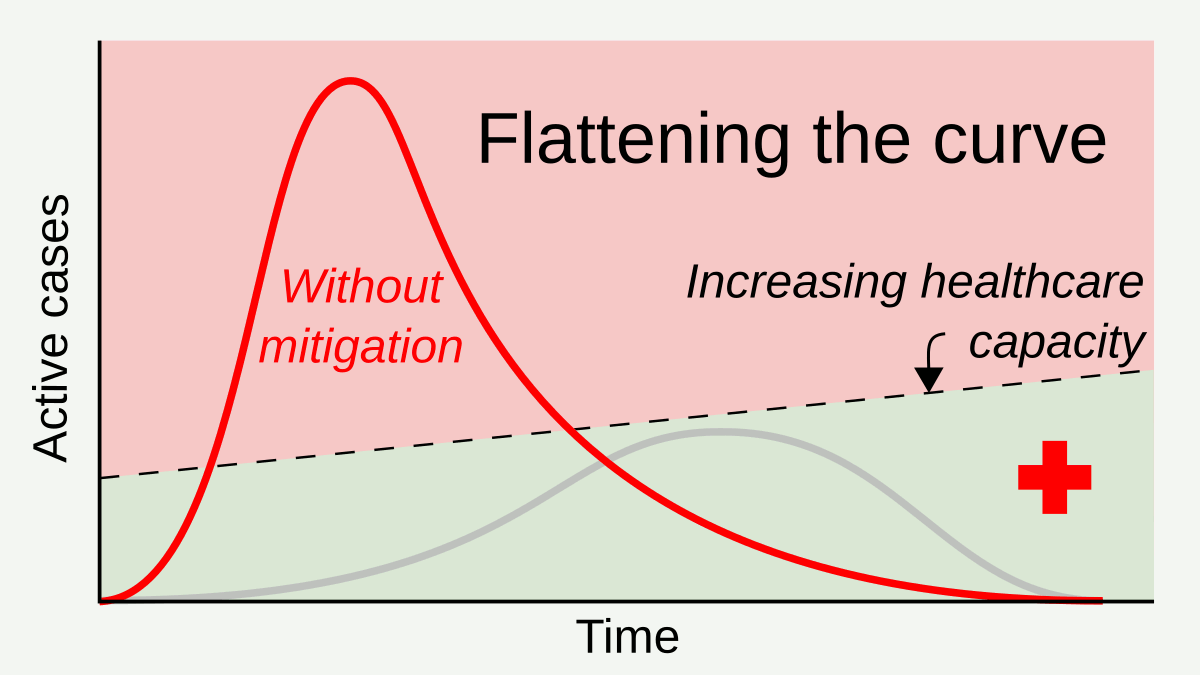|
2020s In Economics
This is an economic history of the 2020s. Economic history refers to the study of economies or economic events of the past, including financial and business history. Global events and issues COVID-19 pandemic COVID-19 recession The COVID-19 recession was a major global economic crisis which has caused both a recession in some nations, and in others a depression. It is currently the worst global economic crisis in history, surpassing the impact of the Great Depression. The economic crisis began due to the economic consequences of the ongoing COVID-19 pandemic. The first major sign of a recession was the collapse of markets during the 2020 stock market crash, which began in late February and lasted through March. As of September 2020, every advanced economy is in a recession or depression, whilst all emerging economies are in recession. Modeling by the World Bank suggests that in some regions a full recovery will not be achieved until 2025 or beyond. Supply chain disrupti ... [...More Info...] [...Related Items...] OR: [Wikipedia] [Google] [Baidu] |
Economic History
Economic history is the study of history using methodological tools from economics or with a special attention to economic phenomena. Research is conducted using a combination of historical methods, statistical methods and the Applied economics, application of economic theory to historical situations and institutions. The field can encompass a wide variety of topics, including equality, finance, technology, labour, and business. It emphasizes historicizing the economy itself, analyzing it as a dynamic entity and attempting to provide insights into the way it is structured and conceived. Using both quantitative data and Qualitative data, qualitative sources, economic historians emphasize understanding the historical context in which major economic events take place. They often focus on the institutional dynamics of systems of Production (economics), production, Wage labour, labor, and Capital (economics), capital, as well as the economy's impact on society, culture, and language. ... [...More Info...] [...Related Items...] OR: [Wikipedia] [Google] [Baidu] |
Neiman Marcus
Neiman Marcus is an American department store chain founded in 1907 in Dallas, Texas by Herbert Marcus, his sister Carrie Marcus Neiman, and her husband Abraham Lincoln Neiman. It has been owned by Saks Global, a Corporate spin-off, spin-off of the Hudson's Bay Company, since 2024. History 1907–1949 Herbert Marcus Sr., a former buyer with Dallas' Sanger Brothers department store, had left his previous job to found a new business with his sister Carrie Marcus Neiman and her husband, Abraham Lincoln Neiman, then employees of Sanger Brothers competitor A. Harris and Co. In 1907, the trio had () from the successful sales-promotion firm they had built in Atlanta, Georgia, and two potential investments of funds. Rather than take a chance on an unknown "sugary soda pop business," the three entrepreneurs rejected the fledgling The Coca-Cola Company, Coca-Cola company and chose instead to return to Dallas to establish a retail business. For this reason, early company CE ... [...More Info...] [...Related Items...] OR: [Wikipedia] [Google] [Baidu] |
Central Bank
A central bank, reserve bank, national bank, or monetary authority is an institution that manages the monetary policy of a country or monetary union. In contrast to a commercial bank, a central bank possesses a monopoly on increasing the monetary base. Many central banks also have supervisory or regulatory powers to ensure the stability of commercial banks in their jurisdiction, to prevent bank runs, and, in some cases, to enforce policies on financial consumer protection, and against bank fraud, money laundering, or terrorism financing. Central banks play a crucial role in macroeconomic forecasting, which is essential for guiding monetary policy decisions, especially during times of economic turbulence. Central banks in most developed nations are usually set up to be institutionally independent from political interference, even though governments typically have governance rights over them, legislative bodies exercise scrutiny, and central banks frequently do show resp ... [...More Info...] [...Related Items...] OR: [Wikipedia] [Google] [Baidu] |
Stimulus (economics)
In economics, stimulus refers to attempts to use monetary policy or fiscal policy (or stabilization policy in general) to stimulate the economy. Stimulus can also refer to monetary policies such as lowering interest rates and quantitative easing. A stimulus is sometimes colloquially referred to as "priming the pump" or "pump priming". Concept During a recession, production and employment are far below their sustainable potential due to lack of demand. It is hoped that increasing demand will stimulate growth and that any adverse side effects from stimulus will be mild. Fiscal stimulus refers to increasing government consumption or transfers or lowering taxes, increasing the rate of growth of public debt. Supporters of Keynesian economics assume the stimulus will cause sufficient economic growth to fill that gap partially or completely via the multiplier effect. Monetary stimulus refers to lowering interest rates, quantitative easing, or other ways of increasing the amou ... [...More Info...] [...Related Items...] OR: [Wikipedia] [Google] [Baidu] |
Fiscal Policy
In economics and political science, fiscal policy is the use of government revenue collection ( taxes or tax cuts) and expenditure to influence a country's economy. The use of government revenue expenditures to influence macroeconomic variables developed in reaction to the Great Depression of the 1930s, when the previous laissez-faire approach to economic management became unworkable. Fiscal policy is based on the theories of the British economist John Maynard Keynes, whose Keynesian economics theorised that government changes in the levels of taxation and government spending influence aggregate demand and the level of economic activity. Fiscal and monetary policy are the key strategies used by a country's government and central bank to advance its economic objectives. The combination of these policies enables these authorities to target inflation and to increase employment. In modern economies, inflation is conventionally considered "healthy" in the range of 2%–3%. Add ... [...More Info...] [...Related Items...] OR: [Wikipedia] [Google] [Baidu] |
List Of COVID-19 Pandemic Legislation
This is a list of legislation passed in response to the COVID-19 pandemic. China * s:Decision of the Standing Committee of the National People's Congress on a Complete Ban of Illegal Wildlife Trade and the Elimination of the Unhealthy Habit of Indiscriminate Wild Animal Meat Consumption For the Protection of Human Life and Health, Decision of the Standing Committee of the National People's Congress to Comprehensively Prohibit the Illegal Trade of Wild Animals, Break the Bad Habit of Excessive Consumption of Wild Animals, and Effectively Secure the Life and Health of the People Hong Kong * Emergency (Exemption from Statutory Requirements) (COVID-19) Regulation Ireland * Health (Preservation and Protection and other Emergency Measures in the Public Interest) Act 2020 * Emergency Measures in the Public Interest (COVID-19) Act 2020 New Zealand * COVID-19 Public Health Response Act 2020 Philippines * Bayanihan to Heal as One Act * Bayanihan to Recover as One Act Sin ... [...More Info...] [...Related Items...] OR: [Wikipedia] [Google] [Baidu] |
Inflation
In economics, inflation is an increase in the average price of goods and services in terms of money. This increase is measured using a price index, typically a consumer price index (CPI). When the general price level rises, each unit of currency buys fewer goods and services; consequently, inflation corresponds to a reduction in the purchasing power of money. The opposite of CPI inflation is deflation, a decrease in the general price level of goods and services. The common measure of inflation is the inflation rate, the annualized percentage change in a general price index. Changes in inflation are widely attributed to fluctuations in Real versus nominal value (economics), real demand for goods and services (also known as demand shocks, including changes in fiscal policy, fiscal or monetary policy), changes in available supplies such as during energy crisis, energy crises (also known as supply shocks), or changes in inflation expectations, which may be self-fulfilling. Moderat ... [...More Info...] [...Related Items...] OR: [Wikipedia] [Google] [Baidu] |
The Economist
''The Economist'' is a British newspaper published weekly in printed magazine format and daily on Electronic publishing, digital platforms. It publishes stories on topics that include economics, business, geopolitics, technology and culture. Mostly written and edited in London, it has other editorial offices in the United States and in major cities in continental Europe, Asia, and the Middle East. The newspaper has a prominent focus on data journalism and interpretive analysis over News media, original reporting, to both criticism and acclaim. Founded in 1843, ''The Economist'' was first circulated by Scottish economist James Wilson (businessman), James Wilson to muster support for abolishing the British Corn Laws (1815–1846), a system of import tariffs. Over time, the newspaper's coverage expanded further into political economy and eventually began running articles on current events, finance, commerce, and British politics. Throughout the mid-to-late 20th century, it greatl ... [...More Info...] [...Related Items...] OR: [Wikipedia] [Google] [Baidu] |
Social Distancing
In public health, social distancing, also called physical distancing, (NB. Regula Venske is president of the PEN Centre Germany.) is a set of non-pharmaceutical interventions or measures intended to prevent the spread of a contagious disease by maintaining a physical distance between people and reducing the number of times people come into close contact with each other. It usually involves keeping a certain distance from others (the distance specified differs from country to country and can change with time) and avoiding gathering together in larger groups. By minimising the probability that a given uninfected person will come into physical contact with an infected person, the disease transmission can be suppressed, resulting in fewer deaths. The measures may be used in combination with other public health recommendations, such as good respiratory hygiene, use of face masks when necessary, and hand washing. To slow down the spread of infectious diseases and avoid overb ... [...More Info...] [...Related Items...] OR: [Wikipedia] [Google] [Baidu] |
Remote Work
Remote work (also called telecommuting, telework, work from or at home, WFH as an initialism, hybrid work, and other terms) is the practice of work (human activity), working at or from one's home or Third place, another space rather than from an office or workplace. The practice of working at home has been documented for centuries, but remote work for large employers began on a small scale in the 1970s, when technology was developed which could link satellite offices to downtown mainframes through dumb terminals using telephone lines as a network bridge. It became more common in the 1990s and 2000s, facilitated by internet technologies such as collaborative software on cloud computing and conference calling via videotelephony. In 2020, workplace hazard controls for COVID-19 catalyzed a rapid transition to remote work for white-collar workers around the world, which largely persisted even after restrictions were lifted. Proponents of having a geographically distributed workforc ... [...More Info...] [...Related Items...] OR: [Wikipedia] [Google] [Baidu] |






